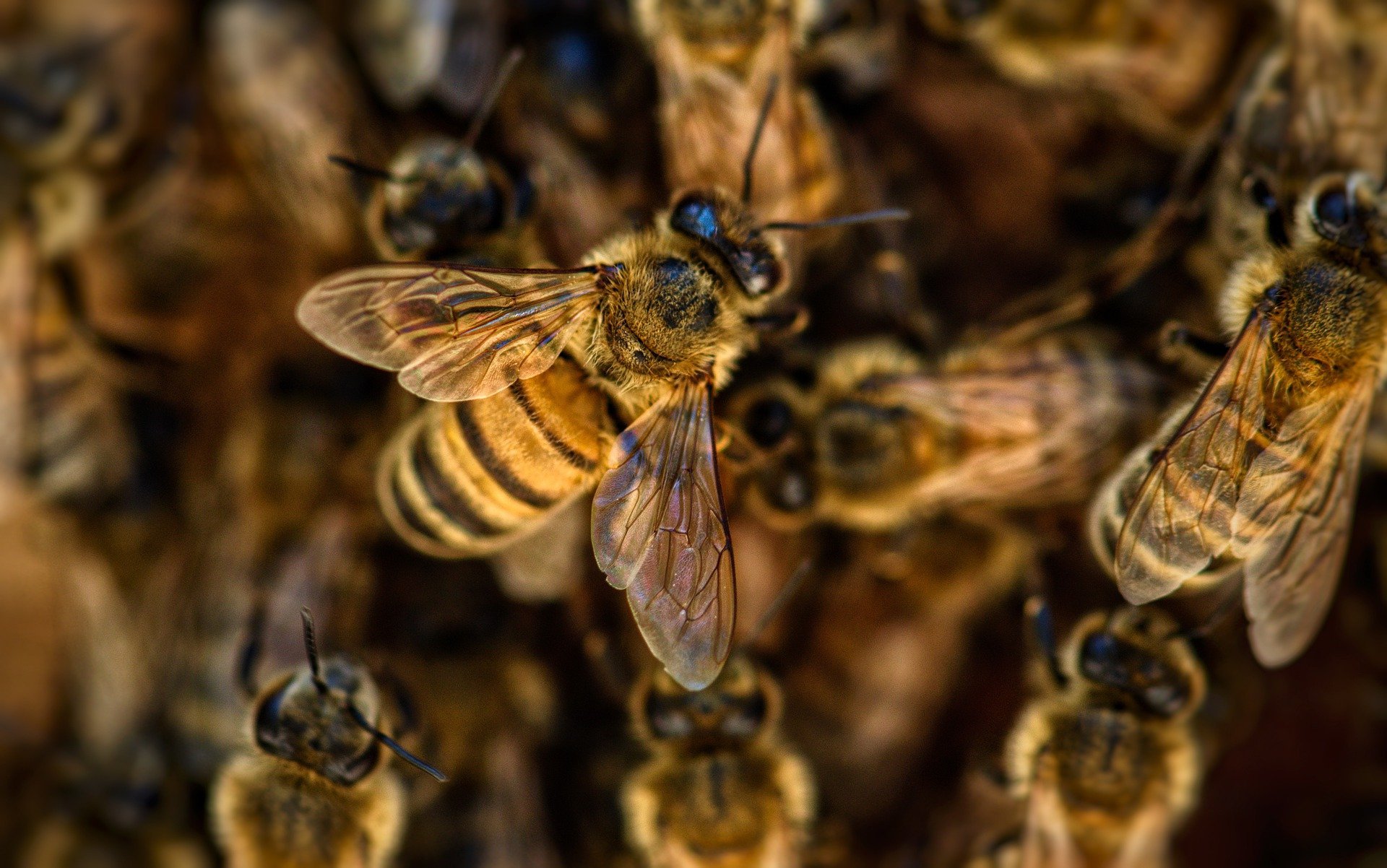
Positive Deviants
An Uncommon Fellowship for Uncertain Times.
March 2025 - November 2025

Where do we begin?
Established institutions, stories and systems of all kinds are unravelling before our eyes. Our efforts to fix them only seem to make things worse.
For some, such instability offers possibility. You may be wildly energized by the creative opportunities for change. For others, it’s hard to stay centered amidst feelings of constant anxiety and overwhelm.
Maybe some days both are true.
But you’re still hanging in there and working for a flourishing future and for that we’re deeply grateful. You’re still motivated to participate in the story and that fills us with hope.
We can all agree that the defining feature of our most pressing adaptive challenges is their complexity—and complex challenges are impervious to simplistic solutions. But in the face of the uncertainty, it’s easy to retreat back to order—back into habitual perspectives and solutions that offer a sense of safety, control and predictability.
It’s a perfectly understandable response…and it’s adding to deepening mistrust and polarization between traditional, modernist and post-modern perspectives – none of which seem to be able to offer a coherent path forward.
But as the meta-crisis accelerates, something in you is feeling called to expand and step in deeper.

The Invitation
Positive Deviants is a practice community and generative social network of systems artists.
Fellowship can mean a lot of different things. Companionship. Some kind of congregation. Invited membership into some kind of elite or prestigious network. A professional or academic award. A band of mythical beings on an almost hopeless quest to save the earth. But Positive Deviants isn’t really any of those things. You don’t get a certificate. It’s not about belonging to something. Almost nobody in the world will know what it means if you put it on your resume. It’s primarily an invitation into learning.
Because without learning, there can be no change, adaptation or evolution.
Positive Deviants is part training course, part dojo, part crucible, part collective inquiry, part community of practice and part personal journey intent on exploring evolutionary change within ourselves and across the systems that we inhabit. It is designed to provide the learning conditions required to address complex adaptive challenges, where the changes sought require people to not only employ their skills and life experience, but potentially alter their mindset, behavior or perspective. It’s a practice hall where we might challenge and encourage each other to explore big questions and allow ourselves the many gifts that come from befriending uncertainty.
Above all it supports people to take the very next step in whatever is their part to play. To bring the fullness of themselves to their unique path of service…and invite yet more in.
There are many ways to intervene skillfully in social ecosystems—to influence the course of events as they unfold. The shape of tomorrow depends on the way we engage today. The questions that drive us hold the power to change a story that has us stuck in all kinds of limiting patterns of thought and action.
Positive Deviants is a fellowship for people who are courageously committed to changing that story.
A Positive Deviant is an Outlier…
A person or group that succeeds despite the odds. Positive Deviance reminds us to:
Seek patterns of emergence and possibility already alive within any system.
Look for people, processes, places that deviate positively from the norm.
Focus on what’s working rather than what’s missing or broken.
Recognize that possibilities for change emerge from within living systems.
Remain perpetually curious, respectful and humble.
Embrace genuine difference and diversity as vital community resources.
Entertain big questions and move with curiosity rather than certainty.
A positive deviant is a kind of time traveler. They come from the future—whether they realize it or not. They are one of the ways that potential futures live in the present. Their deviance is more mathematical than intentional. It is certainly not performative, rebellious or reactive. It is often the bright spot in an otherwise bleak set of outcomes. But they may be experienced by others as deviant. Why? Because even intolerable versions of the present can be resistant or allergic to potential versions of the future!

Learning Landscape
New Leadership for Systems Transition.
Positive Deviants is intended to cultivate the capabilities needed for skillful systems leadership.
Such leadership has both inner and outer facets. A system leader’s self-awareness is a critical variable in their capacity to influence complex systems. The outer work of trying to change a system will often amplify our own inner tensions, assumptions and blind spots; our ability to engage generatively with such personal material shapes the influence we’re able to exert. This focus on the inter-dependence of both the inner and outer dimensions of systems intervention is a defining feature of Positive Deviants.
Timeless tradition and contemporary research alike stress that both our external competencies and inner capabilities can be actively cultivated and developed. These are the areas and practices we will be exploring.
Domains of Practice
Ways of Seeing.
Expanding our perspective and seeing the invisible. Sometimes this may mean actively examining, or even being gently challenged in perspectives that feel true—including the ones we hold most closely. In practice, it’s harder than it sounds. Positive Deviants endeavors to create a learning environment where such exploration can be held in a good way. Regular intervals of silent pause, journaling, contemplation, story-telling, and ‘devil’s advocacy’ will be a few of the ways we do this together.
Ways of Relating.
Cultivating greater intimacy and connection with the human and more than human worlds. We will adopt an attitude of appreciation for each other, the living Earth, and future generations. Practicing an appreciative attitude is different than agreeing, or attempting to please, but rather requires effort when conflict inevitably arises, or when working across boundaries of difference. Humility, curiosity, an ethos of care, and fluidity in one’s position are also practiced here.
Ways of Knowing.
Cultivating greater fluency with complexity principles and practices. To do so, we will hold a keen awareness that certain issues are likely more complex than they seem, and may require critical thinking, future vision, and an ability to hold multiple stories at once. We will endeavour to bring some rigour and depth to understanding complexity from many different perspectives. We will adopt noted complexity scholar and coach Jennifer Garvey-Berger’s position, “what do I know to be true, and how could I be wrong?”
Ways of Doing.
Honing a capacity for courageous and skillful action. We will explore the patterns of intervention required to successfully navigate hyper-complexity and disruptive change—which are often non-linear, non-forceful and may appear to flout conventional norms of leadership and advocacy. We will endeavor to practice moving with authenticity, audacity, creativity, and agency in ways that disrupt conventional patterns, shine a light on unhelpful consensus agreement, and open up constricting narratives in the direction of innovation and possibility.
Ways of Being.
Cultivating greater self-awareness, centered presence & complexity consciousness. We will engage in practices to enable us to move in the world with greater awareness, presence and connection. All systems shaping tools and techniques are harnessed to whatever state of consciousness is wielding them. Leadership that is rooted in complexity consciousness—a relational mindset of deep connectedness, love, and awareness – is qualitatively different than leadership rooted in a mindset of separation, fear, and control.
What is ‘Systems Change’?
Systems change means many different things to different folks. In political discourse, the system is often a linguistic shortcut meaning the current reality and all its negative aspects. All sides of the political spectrum mobilize support using narratives that characterize particular groups as victims of a ‘system’ run by—and for the benefit of - some form of ‘corrupt elite’. ‘Systems change’ can often mean dismantling existing structures to arrive at a future that is fundamentally different (more equitable, more sustainable etc.).
In Positive Deviants we will be inviting a complexity lens to the table. Any living system—at whatever scale—has distinctive characteristics and properties that emerge from the relational dynamics within that system along with the external relational and energy pathways that sustain & shape it. When we say systems change, we mean intentional efforts to influence those dynamics and pathways in ways that lead to the emergence of ‘beneficial’ new systems properties, outcomes or states.

Who This is For
These times call for a rich diversity of approaches to systems transformation.
We each have our part to play. Some are called to the work of dismantling existing systems. Some to incrementally improve crumbling systems from within. Others to support those suffering most from the design or collapse of existing systems. All are needed.
But Positive Deviants is intended to serve quite specific changemakers—positive deviants who are primarily focused on building viable alternatives to the status quo. These are people who are committed to both evolutionary change and to finding the most skillful and effective way to bring about such change – even if it requires significant personal transformation.
We are looking for systems entrepreneurs with transformative ideas that might hold the potential to re-organize the energy of an unstable system at scale. People who are building a different kind of future and actively bringing others along on the journey. We don’t care whether you identify as a ‘changemaker’, a ‘complexity leader’, a ‘social innovator’ or any other label. You may be working in community settings, a non-profit organization, a start-up or established business, the philanthropic sector or various levels of government or public service.
But wherever you work and however you identify, we are looking for five distinct characteristics:
Transformative Potential.
Your work holds the potential for significant impact around a collective challenge. You can see a different way of doing things that may be invisible to others and you are intent on bringing it into reality. We’re particularly interested in ideas and approaches that are genuinely fresh and innovative. It might be something utterly new that has never been seen before. It might be an act of bricolage—the creative recombination of existing patterns. It might involve creating or tending some social ecosystem within which creative people, programs, products or processes might emerge, connect and take root. Even if it’s only a seed right now, your work holds the very real possibility of transformative impact at the scale of whole socio-cultural systems.
Visionary Action.
At your core, you are a practitioner—a creative and audacious ‘doer’. A weary and somewhat shattered optimist in whom the spark of hope has not yet been extinguished. Your past is likely littered with projects, organizations, programs, platforms, movements, campaigns, processes or artworks that you have founded, built, initiated, tried. These initiatives may be very visible to others, but they could also be executed quietly in the margins. There will undoubtedly be juicy failures in there too.
Tenacious but Flexible Commitment.
It doesn’t have to be a single issue. But your commitment to the creative systems transformation that seems to be your calling is bone-deep, long-term and very real. We’re looking for people who are disciplined and dedicated in pursuit of that commitment. Relentless. Driven. Maybe even a bit obsessive. At the same time, you are so committed to your goal and accountable to the change you seek that you are willing to be flexible in your tactics—even if that means radically shifting your approach, adapting, experimenting or even collaborating with the ‘enemy’.
Openness.
It’s possible you have recently hit the wall or experienced some form of shattering realization that what you are doing is not working and something fundamental in your way of working needs to shift. You may be on a threshold of some kind or you sense the lure of a ‘bigger’ story calling you to inhabit your path in a different, more expansive way. You would actively welcome support, outside perspective, coaching and experimentation with new practices at this point in your journey. While you may spend most of your life being a guide for others, right now you know you need—and are truly open to—being guided yourself.
At a more general level, you have an insatiable hunger to learn, to question, to expand your perspective and to lean into the edges of your own development - the humble curiosity and sense of wonder that characterize lifelong learners whatever their station in life. You have a sense of how your own reactivity, unresolved wounds, personal biases and overall state of consciousness impact your capacity for influence. You also know there are many ways of knowing and you are wide open to exploring them. The body’s wisdom. The visionary imagination. The open heart. The deep mind. The vitality of spirit and soul. The teachings of wild landscapes. You have a longing to engage the full spectrum of your intelligence.
Influence.
Such influence may or may not be accompanied by positional authority. But whatever your current role, others look to you as a leader. You are poised for impact. You have existing relationships and viable entry points into the parts of the system you want to shift. Working in—or on—that system is already part of your daily reality. Your leadership may be directly entrepreneurial. You may be leading an organization, a movement or a community. Or you may be creating richly complex adaptive spaces, networks and resource flows that allow innovation, inquiry, collaboration, collective solutions and emergence from others to thrive and take root. Either way, you already have skills, tools, relationships— including with those who do hold authority within the system you hope to change, clout and experience through which influence can flow.
Transformative Potential. Action-Oriented. Committed. Open. Well-Placed.
All five qualities are important. In addition, for the upcoming 2025 cohort, we will be particularly looking for people who:
Have a tangible and relevant initiative (a project, process, platform, innovation, start-up etc.) that is intended to address some significant collective and challenge and allows for action-learning and experimentation. They are ready to roll up their sleeves and work.
Are serious about doing the inner work – they are hungry to expand, deepen, evolve, and increase their self-awareness and centered presence. They are eager to explore the connection between their own state of consciousness and their impact in the world. And they are willing to put in the time and effort needed required to build capability.
Feel a strong sense of calling to contribute or participate in impacting a particular system some creative way.
Can fully commit to the participation and specific practice requirements and feel excited to do so! They seem hungry to learn.
Have the capacity to amplify and uplift the other participants. As we see who applies, we may see opportunities for creative collaboration and begin to think of an overall cohort as well as individual participants.
Are primarily based or work within one time zone of Mountain Time. This is specific for 2025 applicants and is not an absolute requirement. But if you live, or the focus of your work, is two or more time zones away, you will need to make a very strong case for acceptance into the Fellowship this year.

At the same time, it’s important to state that this is not for everyone.
Indicators that the fellowship may not be a good fit – or the right timing – for potential applicants include:
Certainty.
(too late!)
As the old Zen stories remind us, there’s no point in going on a learning journey if you already know the answers or are too attached to your solutions. What that means in practice is that if your analysis, vision and strategy are already well crystallized and you are mostly implementing (rather than, say, experimenting), you will find a better fit in an accelerator or some other program designed to showcase, fund or otherwise attract resources and support for an initiative in its later stages.
No Clear Focus for Application.
(too soon!)
The fellowship is designed to be a good fit for those who are already actively working/experimenting/supporting creative and entrepreneurial action within the systems they seek to influence. You will already have some position of influence – whether or not that is a formal role. The rhythm of the program is intended to be something like Retreat! Return! Experiment! Learn! Repeat! Without a focused sandbox or action learning project to experiment with, it is likely to feel overly focused on the abstract/personal development/group process.
A Primarily Oppositional Focus.
(too much compromise!)
When faced with blatant destruction or oppression, it can be vital to directly oppose, expose, disrupt, resist or at least slow things down long enough to make space for alternatives to even exist. But it’s hard to be a warrior and a builder at the same time. Positive Deviants is intended to support creators and builders who are often working in the spaces that have been made possible by the commitment and inter-generational sacrifices of frontline warriors. But it will not be a good fit if your primary commitment is currently focused on resisting, opposing or organizing against some aspect of the current system. The fellowship is likely to ask too much compromise of you at this point in your journey.
Discomfort with Whole-Person Learning.
(too weird!)
The Fellowship is deliberately and unapologetically multi-modal. It is non-coercive and will not ask participants to compromise their boundaries or values, but it will invite participants to immerse themselves in different kinds of learning experiences. Those who are overly attached or somewhat allergic to particular modalities – whether that be arts and land-based learning, Indigenous teachings, somatic practices, cognitive/theoretical perspectives, the world of spirt/soul/intuition, practical tools and analysis – will be better served by programs with a more singular focus.
Mismatch with Personal Process.
Mismatch Between Your Group Survival Skills and the Actual Group Composition.
(too risky!)
Things are overwhelming out there. We fully recognize that what many – perhaps most - changemakers need most right now is support, affirmation, respite and, above all, healing. But it’s not what we are primarily offering. It’s important to be clear that while Positive Deviants has a trauma-informed approach, it is intended to be as much crucible as sanctuary. To challenge and stretch as well as to support. It’s not an easy polarity to hold and we will almost certainly get the balance wrong at points. We recognize that learning is seldom possible in spaces where there is activation, re-triggering or an absence of safety. Our invitation to you is to assess your readiness for the stretch, and what resources you have internally and in your community to support you in this kind of learning.
(too burdensome!)
Positive Deviants is, above all, about stepping more deeply into your unique path of service. But it’s also a fellowship—a group that will meet, gather and learn together. We do our best to curate a group of respectful and resilient fellow-travelers, but there’s no guarantee who else will be along on the journey. Do not under-estimate the realities of being in a group!
Some brilliant entrepreneurs can be obnoxious and insensitive to the feelings of others. Some people will understandably find it hard or even impossible to be vulnerable or do inner work in mixed groups; to go deep, they need to be around people they trust deeply and that can take years to build. Some—maybe all—members of dominant groups are unconsciously burdensome on members of racialized, oppressed or marginalized communities. Some people have never have really considered their impact on others before. Others might be so anxious, insecure or have such a high need for approval from a group—or particular individuals/sub-sections within it—that their feedback and critiques are unreliable and mostly about them. And so on.
We will do our best to make sure that the multi-headed demonic threshold guardian that is the Positive Deviants selection process devours or chases away all such potentially difficult group participants. But some might get past! You might even be one of them! Don’t apply if you need a very particular kind of group—or for a group to be a particular way—for you to do the work that is most important for you to do at this stage of your journey.





